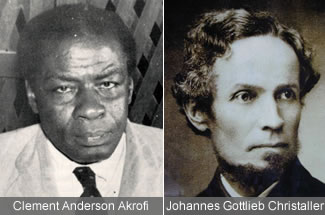Our History
The Akrofi-Christaller Institute of Theology, Mission and Culture is a postgraduate research and training Institute fully accredited by the Ghana Tertiary Education Commission (GTEC) as a tertiary institution with a Presidential Charter to award its own degrees. It is a research university promoting African innovation and excellence and dedicated to the study and documentation of Christian history, thought and life in Ghana and in Africa as a whole, in relation to their African setting and to world Christianity. ACI seeks to strengthen Christian witness in the modern Africa and world context through Christian scholarship.
The Institute stands in a tradition that combines piety, creativity and academic excellence in the furtherance of the witness to the gospel in Ghana and across Africa.
This was the hallmark of the training given in the historic Akropong Seminary whose buildings, (Basel House in Akropong-Akuapem), constructed in the 1840s and 1860s but renovated in 1992, and expanded in 1996-1998, the Institute now occupies.

The Institute was formally established in 1987 as an independent body, a company limited by guarantee and registered under the Companies Code as a charity. The legal and administrative structures of the Institute were designed with a view to creating an institution that would be sustainable, financially self-supporting and sufficiently open to serve also the needs of the wider Christian and academic communities.
The staff members and students seek to model Christian community, meeting for daily worship as the accompaniment of academic and pastoral activities.
Our Timeline
-

1840s
Antecedents: Establishment of Akropong Seminary and construction of historic Basel House in Akropong-Akuapem as a base for theological training.
-

1987
Formal incorporation of the institute as an independent body, a company limited by guarantee and registered under the Companies Code as a charity.
-

1992
Main renovation of Basel House and Akropong Seminary buildings as the first phase of a planned program of expansion and development of the facilities.
-

1998
Completion of all phases of main expansion programme, resulting in modern, well-maintained residential and catering facilities, library and and study facilities.
-

2014
Completion and opening of phase one of new library building, which houses an extensive theological collection and archive as well as state of the art I.T. systems.
